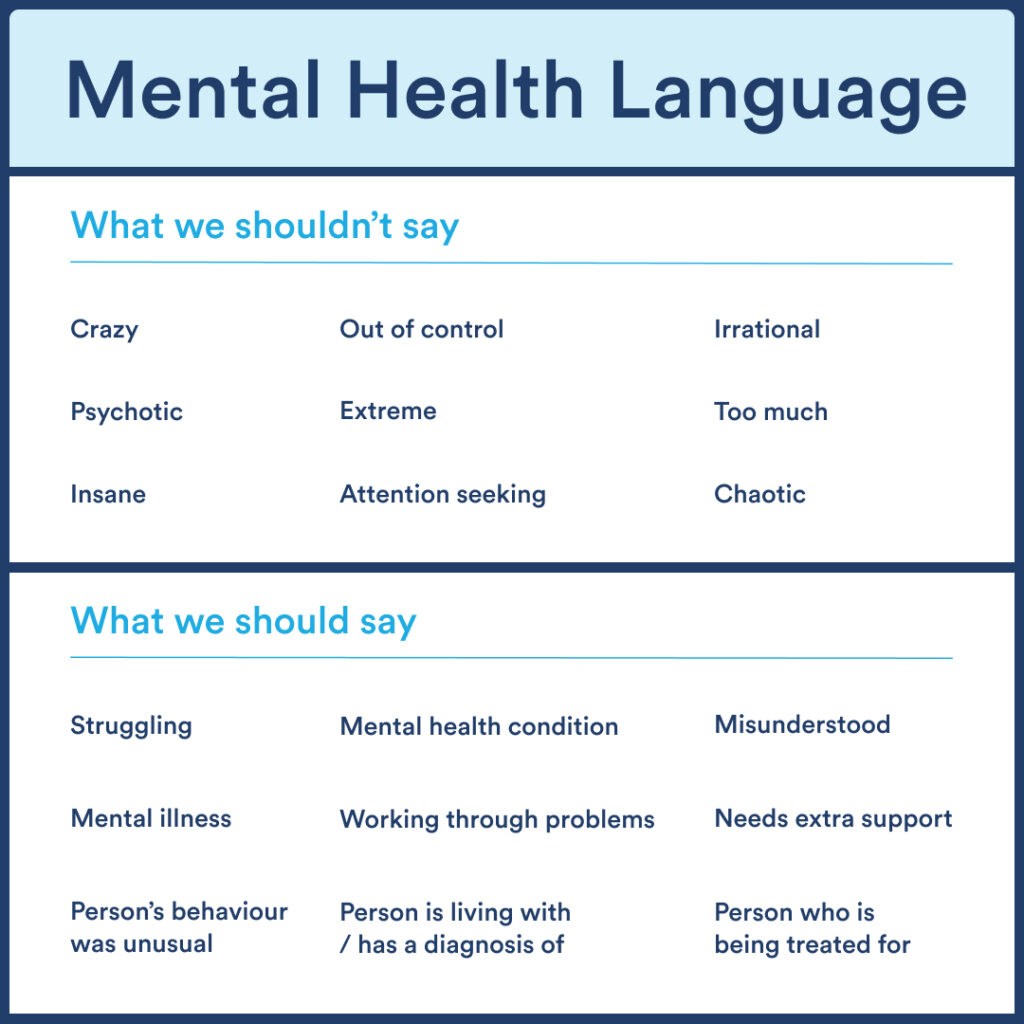Is the language you use to discuss mental health adding to the stigma that surrounds the subject?
The language we use to discuss and describe mental health matters; more than most realise. At Everymind at Work, we often ask clients at the beginning of training sessions what word(s) they associate with the word ‘mental’. Quite often the responses we get are ‘mad’, ‘crazy’ and ‘nuts’. This is due to associative activation which is nicely explained by The Mental Health Foundation in their blog post here. However, this means our brains automatically associate the phrase ‘mental health’ with so many negative connotations without us even realising it. In contrast, when most people hear ‘physical health’ they would have positive connotations.
By recognising that language can unconsciously trigger our brains to think in a certain way and add to the stigma that surrounds mental health, we realise that our words matter. We should be more conscious of the language we use so that we do not add to the stigma or negatively impact those around us, especially those who may be struggling with their mental health.
“Words are a barrier to help-seeking and a motivator for making discrimination acceptable.”
Mental Health Foundation
Education is key. If we can help others to understand why certain language may be inappropriate, we can help create an environment where people feel more comfortable being open and honest about how they feel.
Examples of poor language choices
Using words like “crazy”, “psycho”, “deranged” and “mad” to describe someone’s unusual behaviour, adds to the stigma surrounding mental health disorders. Moreover, using psychological terminology out of context and incorrectly, for example, “schizophrenic weather” trivialises mental illness.
Just because someone likes to be clean and tidy, does not mean they have “OCD”. Living with clinically diagnosed Obsessive Compulsive Disorder is very different. Equally, having mood swings does not mean you are “Bipolar” and therefore these ‘labels’ should not be depicted in this way.
Using words such as “a victim of” or “suffering with” suggests that those who have a mental illness have a poorer quality of life, which is not the case. They are “living with” or “someone with” a mental illness. Similarly, we should not label someone by their mental illness. They are not “an anorexic”, they are a person who has “a diagnosis of” anorexia.
It is also problematic to use the phrase “committed suicide”. The word ‘committed’ originates from when suicide was considered a crime – it was a sin; which is no longer the case. The following terms are more appropriate: “took his/her own life”, “ended his/her own life”, “completed suicide”.
It is important to note here that mental health is very individual and therefore we should consider personal preferences too. As an example, some people like to have an official diagnosis whereas others find them further stigmatising. We should feel comfortable asking others how they would like their mental health conditions to be discussed/referred to if unsure.

What can you do?
Language is evolving and collectively we need to work together to ensure we are not adding to the existing stigma. So what are the first few things you can do?
- Actively strive to improve your knowledge of mental health – our free Everymind Champion course is a great starting point!
- Consciously think about the language you use around friends, family and colleagues
- Ask questions and be open to learning
For more information on how to have mental health conversations, download our ‘How To Talk About Mental Health’ PDF here.








